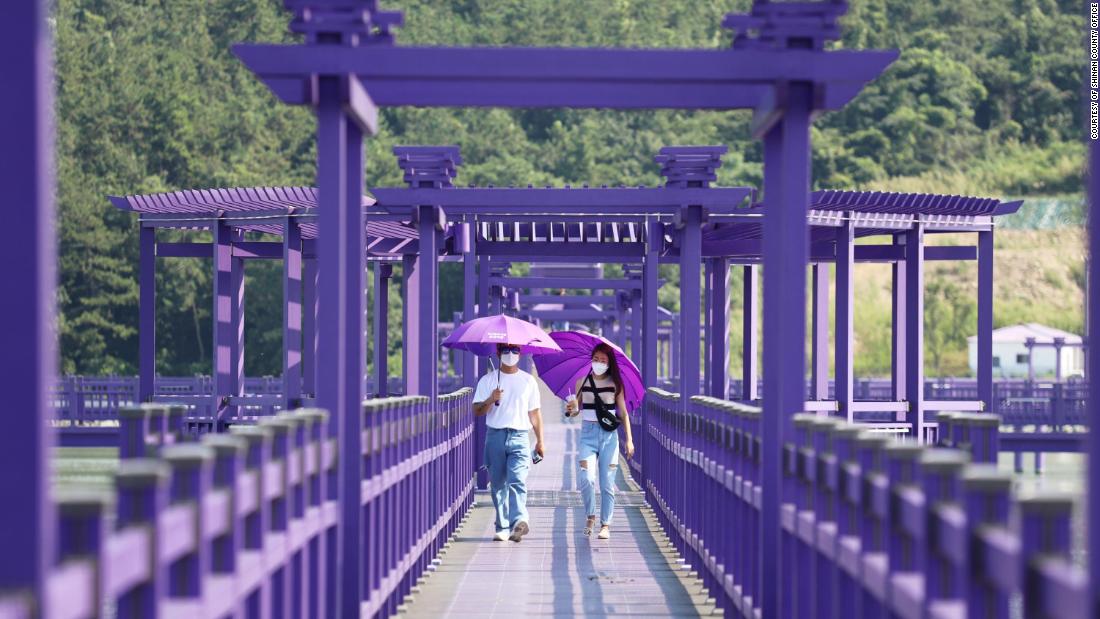(CNN) — A South Korean farming community has reinvented itself by transforming into an attraction perfect for the Instagram era.
And with the country’s borders essentially closed due to the coronavirus pandemic, travel-hungry people are flocking to the area. Between June and August of 2020, more than 100,000 visitors came to Banwol Island, a 20% jump from the previous year.
Since 2018, more than 490,000 guests have visited the islands.
The project was planned in 2015 as part of South Jeolla Province’s branding initiative to “create attractive island destinations” and was inspired by the purple bellflowers (aka campanula) that are native to the area.
Tiny Banwol and Bakji Islands have fewer than 150 total residents. Since the purple project began, the farmers started growing kohlrabi and beets, both of which are on brand. The local government planted 30,000 New England asters and 21,500 square meters of lavender fields.
Visitors can walk between the two islands via — you may have seen this coming — another purple bridge.
Banwol’s risky but beautiful move seems to be paying off. South Koreans who leave the country and return are subject to a two-week quarantine when they come back, so most locals are opting for domestic tourism.

